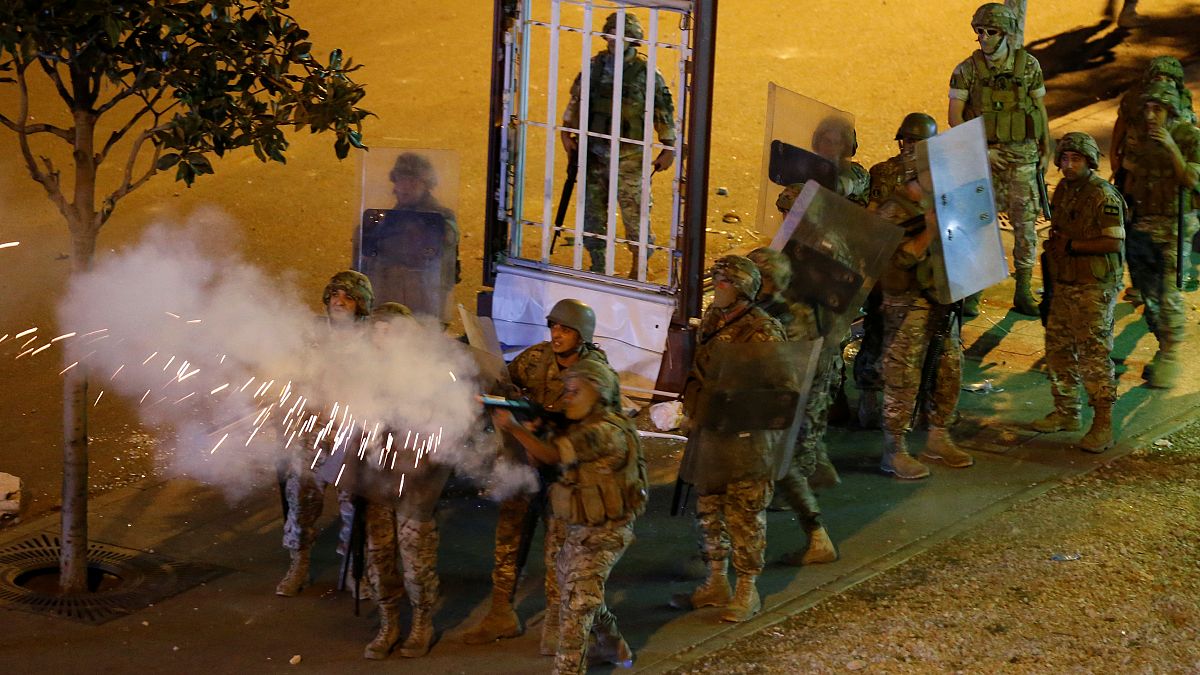Demonstrators called for the "downfall of the regime" in Lebanon as tens of thousands took to the streets protesting against corruption and government inaction.
Demonstrators burned tyres and blocked roads in Beirut, Lebanon, for a second day on Friday to demand an end to alleged corruption and for political leaders to step down.
Tens of thousands of protesters poured through towns and cities chanting for the prime minister, Saad Hariri, to step down.
They also called for Lebanon's president and parliament speaker to quit, too.
Riot police rounded up protesters - firing rubber bullets and tear gas. Dozens of people were wounded and detained.
The protests follow warnings from economists that Lebanon's economy and financial system are close to collapse.
On top of this, a controversial WhatsApp tax was announced on Thursday which would charge taxpayers 20 cents a day for internet calls. One Lebanese newspaper declared the protests "the WhatsApp revolution". The plan was quickly reversed after the backlash.
The prime minister urged the government to pass reforms to avoid an economic crisis. Al-Hariri delivered a televised speech on Friday giving his partners in government 72 hours to stop blocking him and hinted that he might resign if they didn't. They have repeatedly failed to implement reforms already:
"Whatever the solution is, we no longer have time. And I am personally giving myself only a little time. Either our partners in the settlement and the government give a frank, decisive and final response that convinces me and convinces the Lebanese, the international community and all those who are expressing their anger in the streets today that there is a decision from everyone to reform, to stop the waste and corruption, or I will have another say."
Lebanon was shattered by war between 1975 and 1990 and has one of the world's highest debt burdens while unemployment for under-35s is at 37%. The unrest comes as the country tries to convince regional allies and Western donors that it is serious about tackling problems in its economy including a wasteful electricity sector.


